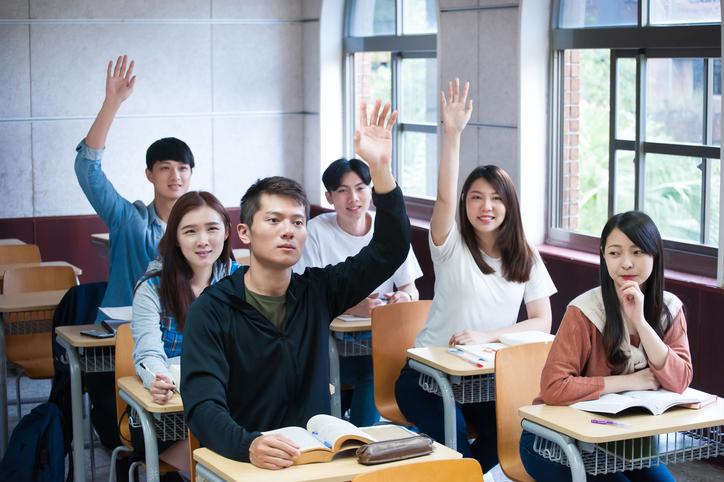We need to build trust between students and universities. The past few years have been challenging for students in Hong Kong and worldwide. Ideological polarisation has led to anger and silence, while the proliferation of online learning during the pandemic has weakened relationships between students and university staff. Students might not be confident that universities have their best interests at heart.
The belief that universities should look out for students’ interests as best they can has led us to ask what trust looks like, and how it can be built at universities considering these challenges. Learning to engage one another with respect and empathy can change our environment over time and create the conditions for relationships of trust.
Does higher education require trust?
A degree of trust is implied in the relationship between students and the university. Higher education is about more than studying or the distribution of “knowledge units” in a society; it is about learning and whole-person development. Students enter university trusting that their time in class, the people they meet and the communities that surround them will shape their development.
- How to advance equity-informed leadership in universities
- Towards 2035: a future view of university education
- A DIY guide to protecting academic freedom
The exchange of trust goes both ways. University staff and faculty, for their part, trust students to be open-minded, sincere and diligent in working towards the goal of learning.
Universities must prioritise programmes that promote students’ whole-person development, equipping them with essential skills such as effective communication, time-management, collaboration, hardiness and leadership. By doing so, universities honour the implicit trust placed in them by their students and prepare them for success in both their careers and personal lives.
At the University of Hong Kong, we are doing this through the Lead for Life initiative, which enables students to develop their character and leadership competence. We host seminars and training workshops, run courses, provide structured opportunities for mentoring from senior and junior professionals, and create communities where students can experience mutual trust, ask questions, reflect on their experience, and talk to peers and mentors about how to do life better.
What criteria must be fulfilled for universities to be trustworthy?
We have come to believe that all parties do not have to agree on everything to build trust. It is virtually impossible to achieve that, be it among student groups or between a student group and a university administrator. It is enough to agree on a goal and be confident that a person or group is empathetic and competent to meet that goal.
However, mutual respect, a higher-order value based on a recognition of the worth of the other person, is necessary to build trust. Philosopher Stephen Darwall at Yale University describes trust as an attitude of the heart, a form of confidence in someone and an implicit invitation for them to trust themselves too. Behind this is the deeper reality of our shared humanity and learning over time to exercise empathy and try to understand those we disagree with, looking beyond the beliefs to the person who holds them. Commitment to the worth and well-being of their students, along with the capacity to deliver holistic education that serves this, is the condition universities should fulfil to warrant trust. Compassion and understanding enable these conditions to be fulfilled.
Is this possible in a polarised environment?
We believe it is possible to establish trust between students and universities in a polarised environment. University staff and students should aim to understand each other’s pressures and challenges, then begin to build small-scale relationships of trust. Large programmes and policies will be ineffective if these relationships are not cultivated.
Building trust in these environments requires personal engagement, whether between a university administrator and a student group member, a senior resident tutor and a student resident, colleagues of different rank, or anyone with whom we disagree and must face in a meeting. Although we cannot control everything in our environment, we can control how we engage with each other. Engaging one another with respect and responsiveness in these domains can change our environment over time.
It is easier said than done. Building trust requires vulnerability from both parties and this can be daunting. But vulnerability can be incremental, and trust does not have to be total. For example, when supporting a student group, a dean of student affairs (or any university member) can start with small things, speaking candidly about their worries, frustrations and oppositions, and then see how the conversations develop. Ask whether every party is open to understanding each other. Does everyone communicate sincerely in return? What actions follow their words? It is a negotiation, involving give and take.
Vulnerability and uncertainty can build trust (when we understand each other in genuine conversations) or betray trust (when communication is seen as inauthentic or inappropriately hierarchical). In class, for instance, teachers can foster unscripted dialogues with students, creating an environment where there is no pressure to provide model answers. Humanities disciplines such as literature, history, philosophy or music are well situated to afford this kind of dialogue.
In a relationship where one party has perceived power over the other (as universities do over students), that party should take the first step to build or repair trust. The possibility of success – a better learning environment and an environment of trust – makes it worth trying. The application of the Chatham House Rule in meetings between students and university administration is one way to create a possibility for a trusting environment. The Chatham House Rule allows free and transparent sharing, enabling participants to risk providing more diverse and substantive input to resolve complex problems. This environment of trust can provide a platform for change and innovation.
At its heart, higher education is not only about administering knowledge; it is about guiding a whole person, and that involves care and courtesy. Higher education is entrusted to see through points of disagreement – no matter how deep – to the person beneath and to engage students to work for a better future, inviting them to trust themselves in that process.
Samson Tse is a professor in mental health and dean of student affairs and Carl Hildebrand is a research assistant professor in faith and global engagement in the Hong Kong Institute for the Humanities and Social Sciences, both at the University of Hong Kong.
If you would like advice and insight from academics and university staff delivered direct to your inbox each week, sign up for the Campus newsletter.




comment